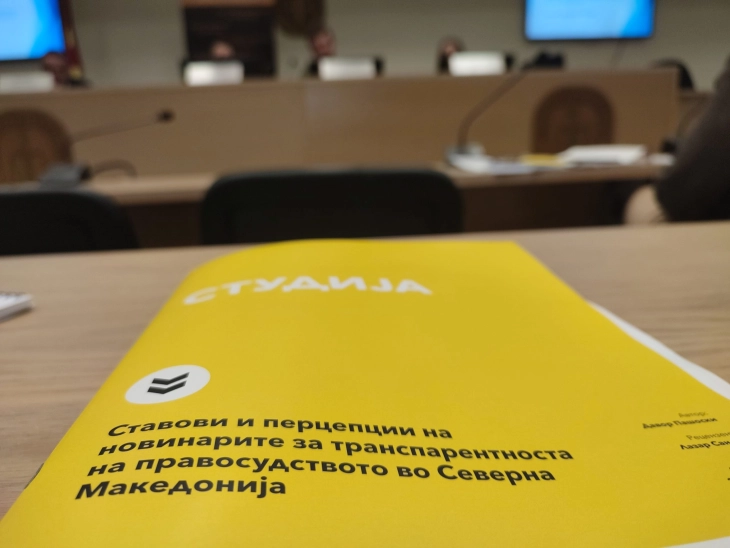AJM presents study on journalists’ perceptions of judicial transparency

Skopje, 29 September 2022 (MIA) – More attention is paid to enabling formal rather than essential transparency in the judiciary, and the quality of the current legal framework doesn’t contribute enough to optimal transparency and openness of the judicial sector, show the results of a study on "Journalists’ views and perceptions of judicial transparency in North Macedonia".
The study, published by the Association of Journalists of Macedonia (AJM) and presented Thursday at the Skopje-based Criminal Court, points to the necessity of ensuring equal access to information for everyone, i.e. the need for all courts to use the same channel and system of communication and the need for court decisions and all other information of public interest to be published on the websites in a timely manner.
President of the Skopje-based Criminal Court, Ivan Dzholev, told today's presentation he believes that good relations are built and improvements are made.
He added judges have often reacted that information may not be a real reflection of what actually happens in the courtroom and what the decisions are.
“Sensationalism or some other impulse twists information a little. We are reacting, but there’s not much feedback with journalists and the media, and probably work needs to be done here as well,” Dzholev said.
According to him, there’s strong will among judges to improve relations with journalists.
“Good communication and accurate information. Our goal is to change the perception in the public and we need the journalists’ help to change such perception,” said Dzholev.
President of the journalists’ association Mladen Chadikovski said the clash of non-transparency and the desire to know is a primordial clash and in the end always gives birth to something of poor quality.
“That’s when more speculation, opportunities to twist the truth or some inaccuracies occur,” he said.
According to Chadikovski, there’s been greater transparency in the recent past period, however that cannot guarantee a systematic approach in the future. He added that publishing court decisions will open an entire mechanism of monitoring court proceedings.
One of the basic recommendations and conclusions of the study is the need to establish easier and more understandable communication between the courts and the public and the media.







